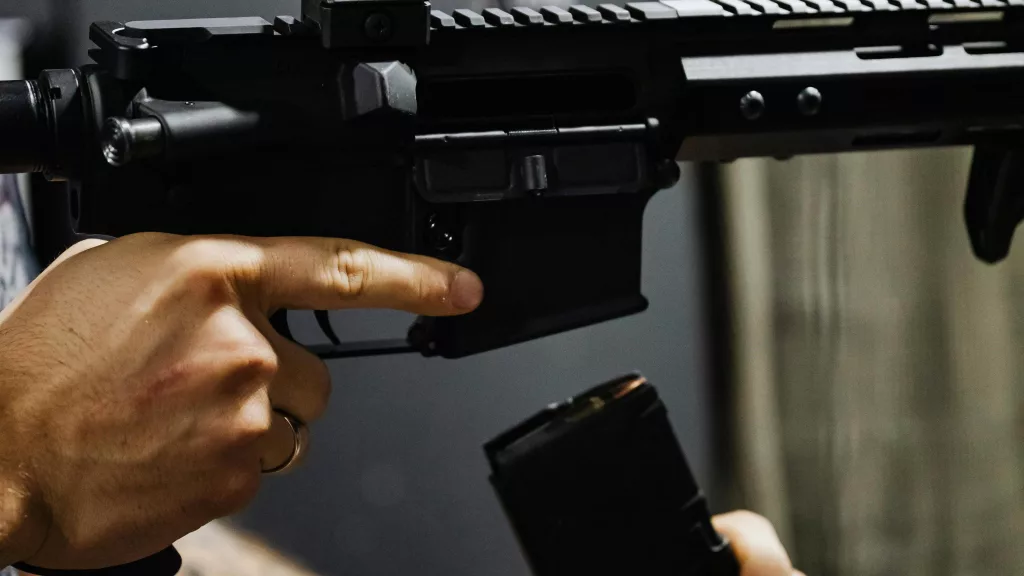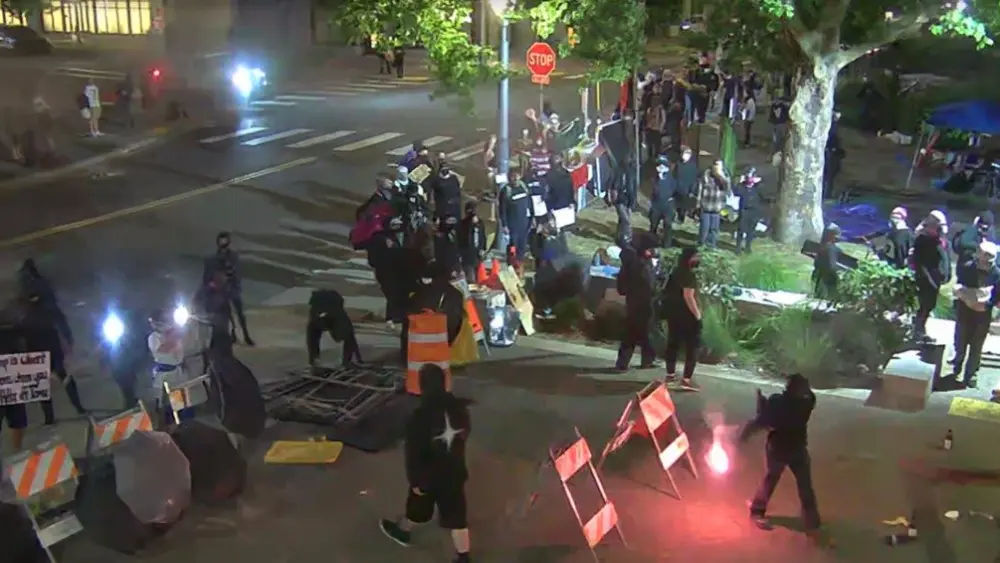KELSO, WA – A Washington gun shop is taking its case against the state’s ban on the sale of high-capacity ammunition magazines to the U.S. Supreme Court.
Gator’s Custom Guns in Kelso filed a petition this week, asking the high court to review the state Supreme Court’s decision in May upholding the controversial law. Supporters of the restriction see it as an important step for quelling gun violence.
Walter Wentz, the Cowlitz County store’s owner, said Friday he hopes to convince the Supreme Court justices to “do their job and not accept all these lower courts waving their finger at them.”
“I look forward to exercising our rights,” he said. “Hopefully, we’ll get some justice out of this.”
A spokesperson for the state attorney general’s office said Friday afternoon, “These reforms are constitutional, as every Court of Appeals to review similar large capacity magazine reforms has found.”
“The Supreme Court has previously declined multiple petitions like this one, leaving lower court rulings upholding these public safety reforms in place,” the spokesperson, Mike Faulk, said in an email.
Gator’s has argued the state’s 2022 ban on the sale of gun ammunition magazines that hold more than 10 rounds violates the Washington and U.S. constitutions. The state constitution protects “the right of the individual citizen to bear arms in defense of himself, or the state.”
But in their 7-2 decision, state Supreme Court justices ruled high-capacity magazines aren’t “arms,” but just a component of a gun that isn’t generally used for self-defense.
“By restricting only magazines of a capacity greater than 10, the statute effectively regulates the maximum capacity of magazines, leaving the weapon fully functional for its intended purpose,” Justice Charles Johnson wrote in the majority opinion. “Indeed, we can safely say that individuals are still able to exercise the core right to bear arms when they are limited to purchasing magazines with a capacity of 10 or fewer.”
The U.S. Supreme Court has, for years, expanded the understanding of what the Second Amendment of the U.S. Constitution covers. The justices have ruled the Second Amendment protects firearms that are “in common use” and are “typically possessed by law-abiding citizens for lawful purposes.”
In their petition for review, Gator’s attorneys write that Johnson’s opinion “deepens an acknowledged division of authority among federal courts of appeals and state courts of last resort over whether these ubiquitous instruments are ‘Arms’ that cries out for resolution.”
“If this Court does not step in and stop the piecemeal removal of integral firearm components from the scope of the Second Amendment’s plain text, soon neither the piece nor the whole will be left with any constitutional protection at all,” the lawyers wrote.
At the state court level, the gun shop argued the magazines’ popularity meant they met those legal tests. Two of the state Supreme Court justices were sympathetic to this argument.
In 2022, in a case known as Bruen, the U.S. Supreme Court ruled state firearm laws must stay true to the nation’s “historical tradition of firearm regulation.” This left lower court judges to deduce how laws written over a century ago would square with technological advances, like high-capacity magazines and semi-automatic weapons.
The majority from the state Supreme Court didn’t grapple with the Bruen decision because they didn’t find the magazines were considered “firearms” in the first place.
Recent federal court decisions give reason for optimism on the state side.
This spring, the 9th U.S. Circuit Court of Appeals turned down a challenge to California’s similar law on these ammunition devices.
And in June, the U.S. Supreme Court declined to hear a challenge to Rhode Island’s restriction on high-capacity magazines.
The Washington law, which has been in effect during the court process, still allows people to own high-capacity magazines, but bans importing or selling them. Over a dozen states have similar restrictions.
The case went to the state Supreme Court after a Cowlitz County Superior Court judge struck down the ban in April 2024. The judge, Gary Bashor, ruled the law violated the Second Amendment and the right to bear arms for self-defense granted in the state constitution. He cited the Bruen decision’s historical tradition test as justification.
In this latest appeal, the gun shop is represented by Paul Clement and Erin Murphy, who also represented the plaintiffs challenging a New York state gun law in the Bruen case. It’s a shift from lower courts, where the Pasco-based Silent Majority Foundation argued for the shop. The two teams will now work in tandem.
Clement, the former U.S. solicitor general under President George W. Bush, and Murphy didn’t respond to requests for comment. Nor did Austin Hatcher, the shop’s attorney from the Silent Majority Foundation.
Pete Serrano, the Pasco mayor and failed Republican candidate for state attorney general, has also represented the shop. The Trump administration is now considering Serrano to lead the U.S. Attorney’s Office for the Eastern District of Washington.
Washington State Standard is part of States Newsroom, a nonprofit news network supported by grants and a coalition of donors as a 501c(3) public charity. Washington State Standard maintains editorial independence. Contact Editor Bill Lucia for questions: info@washingtonstatestandard.com.





